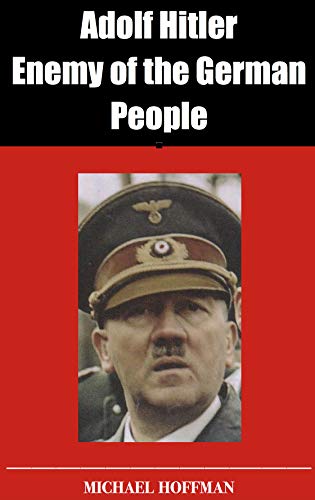Is Israel using illegal weapons in its offensive on Gaza?
By Amira Hass
Haaretz, Jan. 16, 2009
The earth shaking under your feet, clouds of choking smoke, explosions like a fireworks display, bombs bursting into all-consuming flames that cannot be extinguished with water, mushroom clouds of pinkish-red smoke, suffocating gas, harsh burns on the skin, extraordinary maimed live and dead bodies.
All of this is being caused by the bombs Israel is dropping on the inhabitants of the Gaza Strip, according to reports and testimonies from there. Since the first day of the Israeli aerial attack, people have been giving exact descriptions of the side effects of the bombing, and claiming that Israel is using weapons and ammunition that they have not seen during the past eight years.
Furthermore, the kinds of grave injuries doctors at hospitals in the Strip have reported are providing yet another explanation for the overwhelming dread inhabitants are experiencing in any case.
It is precisely for this reason that Marc Garlasco, a senior military analyst at Human Rights Watch (HRW), has come to Israel. His mission: to examine whether the weapons that both sides are using are themselves legal and whether the use of them is legal.
The American-born Garlasco has not been permitted to enter Gaza - as is also the case with people from other human rights organizations and foreign journalists. Therefore, he says, since he is unable to examine actual remnants of the explosives and see the wreckage with his own eyes, he can only guess or make assumptions in some cases. But even from afar, he has no doubt: Israel is using white phosphorus bombs. That was immediately clear to him while he stood last week on a hill facing the Gaza Strip and observed the Israel Defense Forces' bombings for several hours.
Last Saturday HRW hastened to publish a call to Israel to "stop unlawful use of white phosphorus in Gaza." The use of white phosphorus is permitted on the battlefield, explains Garlasco, but the side effects on humans and the environment are severe and highly dangerous. The statement notes that the "potential for harm to civilians is magnified by Gaza's high population density, among the highest in the world."
The fireworks-like explosions, the thick smoke, suffocating gas, and flames that are not extinguished by water, but rather are heightened by it - all of these are characteristic of the white phosphorus bombs the IDF is using. Garlasco believes the decision to make such extensive use of these bombs, manufactured by America's General Dynamics Corporation, stems from conclusions drawn from the Second Lebanon War, in which the IDF lost many tanks.
"The phosphorus bombs create a thick smokescreen and if Hamas has an anti-tank rocket, the smoke prevents the rocket from tracking the tank," he explains. There are two ways to use the bombs: The first is to impact them on the ground, in which case the resulting thick smokescreen covers a limited area; the second way is an airburst of a bomb, which contains 116 wafers doused in phosphorus.
The moment the bomb blows up and the phosphorus comes in contact with oxygen - it ignites. This is what creates the "fireworks" and billows of jellyfish-shaped smoke. The fallout covers a wide area and the danger of fires and harm to civilians is enormous. The phosphorus burns glass, and immediately ignites paper, trees, wood - anything that is dry. The burning wafers causes terrible injury to anyone who comes in contact with them. The irony is that tear gas is included in the Chemical Weapons Convention and is subject to all kinds of restrictions, whereas phosphorus is not.
And in the meantime, in the hospitals in Gaza there are people lying in beds - among them many children - whose severe injuries and burns have appalled the medical teams.
Missing the target
Another new weapon that has forced itself upon Gazans is the GPS-guided mortar - a system equipped with satellite navigation, developed in Israel in late 2006-early 2007, in the wake of the Second Lebanon War. According to local military sources, it was this kind of mortar that missed its target by 30 meters and erroneously hit a United Nations Relief and Works Agency school last week; according to the UN report, 30 people were killed immediately and others died later of their injuries. "It really boggles my mind," Garlasco comments. "According to the literature, it has 3 meters' error - not 30." It is a mortar that is launched in an arc toward an unseen target, he explains, with the intention of being precise and to some extent minimize civilian casualties.
Garlasco says this is the first time the weapon has been used in any military conflict: "The Palestinians say, 'Oh, they use it on us, experiment with it for the Americans.' Experimenting has a different meaning for Americans. We think animal experimenting, but it is indeed a field test."
The new mortar was developed jointly by the Israeli weapons industry and a private American company called Alliant. Israel, notes Garlasco, has learned a lot from the wars the U.S. is waging in Afghanistan and Iraq, but above all learned from its own war in Lebanon in 2006. The mortar that was not supposed to have landed on the school was developed with the knowledge that troops "are fighting an enemy that is in a densely populated area, and here is the first time they use it."
Another important lesson Israel learned from the Lebanon war is that it cannot rely entirely on the U.S. to provide weapons. During that war, when the IDF ran out of cluster bombs, Israel asked for an emergency shipment of 1,200 such munitions (each containing 644 bomblets). The United States refused, and at that point, Garlasco notes, Israel realized it could not rely solely on American help in this realm.
Therefore, Israel has, for example, developed a new type of rifle, the (Tavor) TAR-21 ("an incredible weapon," says Garlasco; he can't help being complimentary) to take the place of the U.S.-made M-16. It has also invented the Delilah guided missile, but Garlasco does not know whether it has been used in Gaza. But not to worry, he adds: Despite the cluster bombs and independent Israeli development, Israel and the United States "still have a great relationship. By and large, the weaponry that Israel is using is American."
Not all of the weapons are new and innovative. Most, in fact, are American products developed during the Cold War. The artillery and incendiary weapons in Israel's possession were designed to destroy Russian tanks "and not Palestinian homes," he notes. The weapons being produced now are developed in the knowledge that the target is militants who operate from within a civilian population. Yet, much of the killing and destruction in Gaza are the result of old-fashioned, cheaper and less-sophisticated weapons.
Only last September did the United States grant Israel's request to supply it with 1,000 bombs of a new type, the GBU-39. They arrived at the beginning of December, and inhabitants of Rafah have witnessed their use - without knowing what they were - since the first day of the aerial attacks on the tunnels there. (The Jerusalem Post was the first to identify these as GBU-39s.) Gazans were surprised when they did not hear an explosion immediately after the Israeli aircraft fired; instead, the earth shook beneath their feet.
The manufacturer of the GBU-39 is the Boeing Corporation. The small diameter and light weight of these guided bombs ensure that any fighter plane can carry a large number of them and thus increase the number of attacks in every sortie. Garlasco says that the weapon is very accurate and penetrates deep into the earth. It is also designed to minimize collateral damage, since it does not explode over a large area like other bombs do. But other types of bombs are also being used and are destroying houses along the border with Egypt.
Gazans have noticed that there are bombs that produce mushroom clouds in various shades of red. Here, Garlasco admits, "I can only speculate. It looks like Israel is maybe using a new weapon that it was not using before: DIME - the dense inert metal explosive, consisting of 25 percent TNT and 75 percent tungsten, a heavy metal. You mix the two, in a fine grain, like pepper, and when the bomb hits the ground it aerosolizes. In less than a second, the mist dissipates and explodes."
He says the advantage of DIME is that "it strikes a very small area, 10 to 20 meters, and the fire it ignites burns out very quickly; if it hits us now, we will die, but no one around us will be hurt. The problem is that when you are killed - you are ripped to shreds and there is nothing left." Indeed, the injuries DIME causes are in general more severe than those caused by a "regular" bomb.
A paramedic at the Al-Awda Hospital in the Jabalya refugee camp has told the Palestinian Center for Human Rights that about 90 percent of the wounded he has rescued during the past few weeks were brought in with at least one limb missing. Is it the DIME that is causing the severe injuries being reported by the medical staff? Garlasco says there are "only rumors. No one has ever seen it used before, maybe it is being used now, but with Israel not letting in journalists and human rights organizations, these rumors are growing, and people say that Israeli is using terrible new weapons."
Perhaps, he says, the redness is a result of the metal in the explosives, but it will only be possible to ascertain this if experts are allowed into the Gaza Strip, or they talk to the IDF. Garlasco notes that herein lies the big difference between the Israeli army and the American army: As a worker for a human rights organization, he receives daily e-mails from the U.S. Air Force with a detailed report of the bombs it has dropped in Afghanistan and Iraq. "The Israelis would never do that," he explains. "They would never talk about what weapons they use and will never allow any discussion in society of whether the weapons should be used."
Another new weapon that he believes is now in use is the Spike: "It is very new, [from] 2005-2006, a special missile that is made to make very high-speed turns, so if you have a target that is moving and running away from you, you can chase him with the weapon. It was developed by the U.S. Navy jointly with Rafael [the Israel Armament Development Authority]. Rafael is the manufacturer."
Drones, incidentally, are a totally Israeli product, he notes; Israel is the world leader in this field, and America is learning a lot from it. The warships bombing Gaza are also Israeli made. But the cannons on the ships are Italian, produced by the Oto Melera company.
From his frustrating observation point outside Gaza, and on the basis of Israel's "very bad record of using cluster bombs in Lebanon and selling them to Georgia," Garlasco says he is worried that Israel is also now using the APAM (Anti Personnel/Anti Materiel) - a new type of round, or unit of ammunition, for tanks that was developed after Lebanon, each of which contains six cluster bombs. The tank guns aim above a target that is hiding behind some kind of cover and the ammunition explodes above people's heads - like those of Iz al-Din al-Qassam cells, for example, when they are firing rockets.
The other side
Garlasco and Human Rights Watch also examine the other side, and he says, "We believe that the Grad and Qassam are illegal weapons because they are not accurate enough to be used in this situation." He adds that Hamas makes frequent use of land mines and explosive charges that are liable to injure civilians.
However, because he and his fellow experts can't go into Gaza, "We don't know what the extent of any [Palestinian] civilian casualties is because of Hamas - whether they are shooting soldiers and their bullets end up killing civilians, or whether their anti-tank missiles miss an Israeli tank and hit a house. We don't know."
In 2005, Garlasco met with a political representative of Hamas and told him that use of Grads is a contravention of the Geneva Convention. The reply he got from the Hamas man was: "'All Israelis are military.' And I explained to them that their reading of international law is wrong." It is amazing, he adds, that the Palestinians can manufacture the Qassams under the conditions in Gaza. The Grad, however, "is a real military weapon, three meters long. It has a significant warhead. The problem is that it is designed to be fired in mass, to be fired 21 rockets at a time, so that you are covering an area and you are having a shock effect. You don't only have an explosion, but also a shock and it covers a big area. Shooting one at a time is almost useless from a military perspective."
As for the Israeli claim about weapons and ammunition being hidden in public buildings such as mosques, Garlasco reiterates that only independent sources will be able to examine this claim and clarify its veracity. If the mosques blown up in the heart of densely populated residential neighborhoods indeed served as hiding places for weapons and ammunition, he would expect to see many secondary explosions, which would have caused significant collateral damage and deep craters. It is difficult to analyze the Israeli claims on the basis of photographs, he notes.
Garlasco is not prepared to accept without question the Israeli claim that Hamas hides behind civilians and makes use of civilians. "Israelis are very quick to say they are doing it, but very short on proof. By keeping the independent people out, they leave doubt in people's minds." Furthermore, he believes, Israel has a record of not telling the truth: "They said in Lebanon they did not use cluster bombs. We found 4 million. They evade answering that they use phosphorus, and we stand there every day watching. They claim to have bombed a truck full of Grad missiles, and according to witnesses who spoke with Haaretz, it turned out to be a truck with oxygen tanks. Not everything that is long is a missile. How can anyone trust the Israeli military?'"
The IDF Spokesman responds: "The IDF is fighting the terror elements while meticulously observing the rules of engagement under international law. For understandable operational reasons, the IDF will not relate to a detailing of the materiel that is in its possession and the parameters in which it used. It should be emphasized, however, that the IDF uses only methods and materiel that are permitted under international law."
***


















